| |
|


THE JEWISH CITIZEN
The likely GOP choice for vice president
By Donald H. Harrison
 SAN DIEGO—One day before Super Tuesday when 24 states will make their preferences known, I can just picture the “surprise” announcement at the Republican National Convention about who the vice presidential nominee will be. SAN DIEGO—One day before Super Tuesday when 24 states will make their preferences known, I can just picture the “surprise” announcement at the Republican National Convention about who the vice presidential nominee will be.
It will be Condoleezza Rice.
Besides her obvious experience as Secretary of State, Rice will enable the Republican presidential nominee (who one assumes will be John McCain) to take some of the wind out of the sails of the Democrats, who are counting on the excitement that having the first woman or the first African-American presidential candidate is bound to create.
Rice is a woman. And she is an African-American. So regardless of whether Democrats nominate Hillary Clinton or Barrack Obama, Rice will serve to balance the political equation.
Having Rice on the Republican ticket means that no matter which party wins in November, history will be made. America will make another stride toward racial and gender equality. Furthermore, large groups of voters—and potential candidates—will feel empowered.
But probably one of the most important aspects of nominating Rice will be to refocus the campaign from “look in the mirror” politics to one in which, one hopes, issues of policy will dominate the discussion. Oh, we know that Iraq already will be front-and-center in any contest between McCain and Clinton/Obama.
As a Jewish voter, I’d like to hear deeper discussions—refinements of the candidates’ positions—on two important issues, one within the realm of domestic policy, the other within the realm of foreign policy.
The domestic area of concern for me is the matter of separation of church and state. I, for one, like the constitutional idea that governments are precluded from showing preference toward any religion, or precluding the free exercise of religion. I believe this provision of the First Amendment is the answer to the riddle “why have Jews thrived in the United States?” Left to worship as we please, we have been free to concentrate our creative energy on many different pursuits, often bringing to them insights from our religious tradition.
So, I want to know how the presidential candidates will respond to demands from much larger blocs of voters, such as the evangelical Christians, who favor legislation to reinforce “Christian values.” Will the candidates want to legislate the Christian brand of morality? Will they accede to demands for prayers in the schools? Will they want to teach “Creationism” as an alternative to Darwinism? Will they back federal legislation requiring public school districts to give vouchers to students desiring a religious school education? Will they rewrite the laws concerning abortions? They certainly will come under pressure from Christian Evengelicals to do all these things.
Additionally, I want to know how the candidates will treat Israel. Do they favor a two-state solution? Are they willing to hold Arab states, as well as Israel, accountable for maintaining and building a peace between the Israelis and the Palestinians? Will they remain steadfast and true to Israel, or will they succumb to pressure from the left and from the Arab world to gradually abandon the Jewish state?
The Republican presidential nominee, in essence, will have the opportunity to decide whether the campaign will be about these kinds of knotty issues, or whether it will be a test of an ideal that clearly majority of the country has accepted, at long last: that every boy and girl, regardless of race or ethnic background, should have the chance to grow up to become president of the United States.


‘Retarded’ bombers story raises suspicions
By Peter Garas
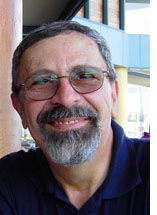 CANBERRA, Australia -- I am somewhat amazed by the headlines in the world's press concerning the most recent bombing that took place in Iraq. CANBERRA, Australia -- I am somewhat amazed by the headlines in the world's press concerning the most recent bombing that took place in Iraq.
The first reports I heard were about "two mentally disabled women" who were said to have been the bombers.
I was disgusted and horrified.
My first impressions took in what was being said and I immediately thought of experiments on Jews that had been conducted elsewhere at another time and the revulsion that had been created concerning this.
Then I thought about it and wondered how people knew that the bombers were "two mentally disabled women"?
I mean if two 15 kg bombs exploded and only parts of the bombers left scattered around the scene along with the remains of those killed and wounded, what was the evidence that enabled the reporters to use the phrase "two mentally disabled women"?
Without meaning to be offensive it's hard enough to distinguish gender from body parts much less their mental state.
I decided to wait a little for the events of the day to percolate past the headlines, until some more quotable quotes appeared and lo and behold the following finally came from the BBC
Brig Qassem Ata al-Moussawi, Iraq's chief military spokesman in Baghdad, told the BBC: "The operation was carried out by two booby-trapped mentally disabled women. [The bombs] were detonated remotely". Police said the women were wearing belts carrying 15kg (33lb) of explosives and may have been unwittingly sent on the suicide missions.
The Iraqi prime minister said: "The terrorists used disabled women in this crime. This shows the moral degradation of these criminal gangs and how much they hate mankind."
Then this from the ABC By KIM GAMEL Associated Press Writer from BAGHDAD Feb 1, 2008 (AP)
"The chief Iraqi military spokesman in Baghdad, Brig. Gen. Qassim al-Moussawi, said the female bombers had Down syndrome and that the explosives were detonated by remote control indicating they may not having been willing attackers in what could be a new method by suspected Sunni insurgents to subvert stepped up security measures.
Secretary of State Condoleezza Rice said the use of mentally retarded women as suicide bombers proves al-Qaida is "the most brutal and bankrupt of movements" and will strengthen Iraqi resolve to reject terrorism."
It was at this point that I wondered whether I was being exposed to truth or propaganda!
I cannot imagine the US Secretary of State using a phrase like: "mentally retarded." If nothing else she at least is sufficiently well versed with the need to use politically correct language. I also find it annoying in the extreme when two journalists do not even manage to get the name of their common source written in the same way.
I started to wonder about the writers of this material and their motivation and I also started to ask some questions about who was telling this story and to look for any evidence for "mentally disabled" or "Down Syndrome" terminology used.
Having scoured the net I can find nothing in the way of "evidence" that can be substantiated.
If, in the final analysis, there is an inquiry into this horrific bombing and it is found that the Iraqi authorities have used this story as a means of garnering support for their regime against those who oppose them, then much as I hate to say it, those that have spread the story, without any verifiable evidence, to horrify the world and garner support are at least as morally bankrupt than the terrorists who are alleged to have used these women.
I must say that the timing is exquisite.
Australia has just told both the Iraqi and US governments that they intend to withdraw combat troops very soon. If I read the election discussions in the USA correctly, then there appears to be a growing sentiment that getting involved in Iraq on the basis of a lie was a mistake and leaving the place now is becoming more desirable by the day, in spite of the oil.
Assuming that the story is in fact propaganda why was this particular genetic disorder chosen?
Anyone who knows anything about Down's Syndrome, knows that people with this disorder are among the gentlest creatures on this earth. Not only that, but with a disposition which makes them both gentle and childlike, what better image could be constructed for propaganda by the regime (and perhaps the US government), now growing increasingly anxious about being left without support and supporters?
What better propaganda tool to level against those that they have tried to paint as virtually the devil incarnate so as to reduce, if not stop, support for them and for their cause and at the same time re-engage the populace to act so as to rid the world of this evil?
Islamic fundamentalists the Taliban and Al Qaida may be, but I suspect that even THEIR tenets hold that people who are "mentally ill" or "retarded" or indeed suffer from a genetic disorder need to be protected, so what better accusation to level against them than one in which they too have finally crossed the line and violated the tenets of their own belief system?
Sorry - until someone can show me some evidence that any of the allegations are true, I for one will certainly keep open the option that this is a last throw of the dice by what I am slowly coming to regard as two very morally bankrupt regimes.
Once there is some credible proof that the allegations are true, I will apologize for what will then prove to be my aberrant thinking! Until then I choose to be a sceptic and recall with some clarity the stories that got us here in the first place about weapons of mass destruction which have proved to be so difficult to locate ever since.
I also seem to recall something I heard as a child:
"Fool me once - shame on you. Fool me twice - shame on me!"


TORAH ON ONE FOOT
Torah portion on slavery quite troubling
By Rabbi Leonard Rosenthal
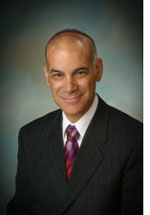 SAN DIEGO—Yesterday at minyan I was struck by the Torah’s laws concerning slavery: SAN DIEGO—Yesterday at minyan I was struck by the Torah’s laws concerning slavery:
"When you acquire a Hebrew slave, he shall serve six years; in the seventh year he shall go free, without payment. If he came single, he shall leave single; if he had a wife, his wife shall leave with him. If his master gave him a wife, and she has borne him children, the wife and her children shall belong to the master, and he shall leave alone....
"When a man sells his daughter as a slave, she shall not be freed as male slaves are. If she proves to be displeasing to her master, who designated her for himself, he must let her be redeemed; he shall not have the right to sell her to outsiders, since he broke faith with her. And if he designated her for his son, he shall deal with her as is the practice with free maidens. If he marries another, he must not withhold from this one her food, her clothing, or her conjugal rights. If he fails her in these three ways, she shall go free, without payment." (Ex. 21:1-11)
As I read these words I was troubled as to how a religious tradition that is so concerned with human rights and dignity and firmly declares that every human being is created Betzelem Elohim, in the Image of God, could in any way endorse or condone slavery. While the Torah puts clear limits on the number of years a Hebrew slave may serve his master (six), nevertheless, if the slave marries another slave his "wife and her children shall belong to the master, and he shall leave alone." Furthermore, a man was allowed to sell his daughter into slavery and into a forced marriage.
When I mentioned this moral incongruity to Dr. Zev bar-Lev he pointed out to me that it is important to consider these laws in the context of their time. During these early Biblical days many nations endorsed slavery without providing any protection at all for those enslaved. The Torah at least provided some protection to the slave. While I acknowledge the importance of understanding Biblical law and narrative in an historical context, this does not prevent me from feeling great angst that the Torah endorses behavior that almost everyone acknowledges as immoral and dehumanizing.
I can also not accept the logic expressed by one traditional writer: "Similarly, when we find the concept of slavery in the Torah, while we certainly may and should question and try to understand, it must be with the realization that our Torah is actually the only code of morals that we have that we can be certain is correct (based on our beliefs), and we must accept the Torah whether it fits into our own preconception of what is moral and what is not." .
Accepting the Torah as reflecting what our ancestors believed to be the Word of God is one thing. Affirming every word of Torah "whether it fits into our own preconception of what is moral and what is not" is quite another. This argument seems to betray our belief that God has given us the ability and the responsibility to choose between right and wrong.
But then again, if our "God given ability to choose between right and wrong" is the ultimate arbiter of morality, then in what sense is the Torah God’s guide to human behavior? Additionally, can it be said that morality is anything more than an expression of personal preference? If what is moral is defined by human beings, what makes one person’s determination of what is right and wrong better than any other persons?
As I consider these eternal questions and formulate and reformulate my response I am reminded of what it means to be a member of the people Israel. The name Israel after all, means "one who struggles with God." I continually struggle with tradition and modernity in my quest to realize God’s Presence in my life.


PEOPLE OF THE BOOKS
Two brothers trying to survive together
My Brother’s Voice by Stephen Nasser with Sherry Rosenthal. Stephens Press, Las Vegas, Nevada, 2005, 232pp.
By David Strom
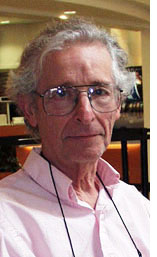 SAN DIEGO—By the middle of 1943, did Hungarian Jewry know about the revolt by Jews in the Warsaw Ghetto? Had they learned of the partisans? Did they understand that Jews escaped from the Sobibor concentration camp and that the Nazis tried to erase all traces of that particular death camp? SAN DIEGO—By the middle of 1943, did Hungarian Jewry know about the revolt by Jews in the Warsaw Ghetto? Had they learned of the partisans? Did they understand that Jews escaped from the Sobibor concentration camp and that the Nazis tried to erase all traces of that particular death camp?
Hungarian Jewry heard rumors about the gassing of the elderly, the sick, pregnant women, and women with babies in their arms. Yet, Hungarian Jewry did little to ready themselves for the possible/eventual takeover by the Nazis. They tried to lead as “normal” a life as possible under the growing anti-Semitism of the Hungarian government.
Stephen “Pista” Nasser and his older brother Andris were young when the Nazis entered Hungary. Both attended a prestigious high school which had a strict quota on how many Jews were allowed in. Andris was intellectual, athletic and protective of his young “brat” brother Stephen. Even though he faced a great deal of anti-Semitism among some of the students, Andris was such a good soccer player that many of the other students respected him on and off the field. Pista idealized his caring brother.
Before the “roof caved in” and Pista and his family were forced into boxcars headed for Auschwitz, Pista’s father died. While his father had been ill for some time, the Nazi onslaught in Europe hastened the death of Pista’s kindly father. His mother had little time to grieve. She had to take firm hold of the family reins or the Nasser family would sink under the weight of the Nazi measures. She did not allow them to wallow in pity. She taught them to fight for another and yet another day of life.
Childhood ended for Pista the day he entered that cattle car. Within hours, riding like penned-in cattle, the caged people in the cattle car needed water to drink, toilet facilities, food to eat, and air to breath. Of course, none of this existed. Once the slop buckets were filled where did the people relieve themselves? Young Pista found a solution. He found a loose floorboard, took it out and somehow made a hole large enough for urine and excrement to fall through to the earth below. This helped relieve some of the horrendous odor that emanated from the human “cattle cars,” and made breathing a bit easier.
Along the way Pista heard a woman tell Andris about a place in southern Poland called Auschwitz. Thousands of Jews were taken there by the Nazis, gassed to death, and their dead bodies burned in huge ovens. If Pista had heard this twenty-fours earlier, he would not have believed it. That, however, was before he saw a Nazi murder his uncle in cold blood and before he saw the senseless beating and kicking of old or young, healthy or infirm, female or male human beings by Nazi “thugs”.
Also along the way, Pista demonstrated his intelligent insight in surviving the nightmare that he and his brother confronted. He would refuse to waste energy on being angry. He had no control over the situations that made him upset, but he could and did control his reactions to them. He promised himself that he would determine, whenever possible, to use his energy level to stay alive. Energy meant life. Wasted energy could mean death.
Andris was three years older than his brother Pista. For Andris being sixteen could mean he stood a better chance of surviving the Nazi death camp. He was taller, heavier, and physically stronger. Yet he was not as prepared as Pista to undergo the tortuous privations that the Nazis inflicted on the inmates at the Auschwitz death camp.
Pista constantly thought of ways to get more food to eat. He was caught and beaten unconscious several different times for smuggling food. After the beatings, Andris would nurse his brother back to a semblance of health as best he could under such terribly infectious living conditions, or at least make him able to return to work. While Pista was caught with crumbs of food several times, there were times when he wasn’t. To Pista, it was worth the risk. They had a tiny bit more food, a tiny bit more energy, hopefully to survive yet another day working under the hated and dreaded beasts. Pista loved his older brother who guided him back to health to live another day in the belly of the beast.
When Andris eventually died of disease and starvation, Pista did not lose hope. He dreamt Andris talked to him. Andris told him he had to live to tell the world their story of the Nazis’ brutality. Many times, over the next few weeks, Pista heard his brother’s voice encouraging him to find out what happened to their mother and the other relatives. His conversations with his “dead” beloved brother, spurred Pista’s will to live. He was determined not to die.
For Pista the war ended in May 1945. Even though he was determined to live, he, like so many others in his condition, was lucky to have made it through the war. He was lucky that a German Wehrmacht soldier stepped in and stopped a Nazi lunatic fanatic from beating him to death. He was grateful that when the Allies bombed and shelled the freight car he was in, he was not killed. It was luck that the war ended when it did, for he may not have survived another day or two.
The Americans nursed Pista back to health. But to get on with his life, he knew he had to return to Hungary. Even though Hungary was not in the American or British zone, but in the Soviet sector, he had to find out whom, if any, of his family survived. Against the advice of the American general of the base hospital, without proper papers, Pista, now fourteen and a seasoned adult left his world of safety once again. This time by choice he went into an unsafe zone.
Along the slow trek home, he met boys who were also returning from the Nazi hell to their homes in Hungary. Together they outwitted the authorities and landed safely in Hungary. Though knowing each other for only a short time, they parted as lifetime friends bonded by the horrible experiences of the Holocaust and the excitement of returning home alive.
An Aunt and two uncles greeted him as he returned home. He questioned them on what had happened to them during the past year or so. They responded by inquiring about Andris and his mother. All of them were eager to hear the history of Pista at Auschwitz. While home Pista learned, as he suspected but did not want to confirm, of his mother’s death in the death camp.
Pista returned to his high school and started classes. Most of his teachers remembered him fondly and helped him catch up for the school year stolen by the Nazis. He did two years in one and graduated from the prestigious school that Andris was unable to finish because of the Nazis.
He worked, after graduating, in the new/old family business. With little capital, he and his uncle worked to make the “family” business successful again. Along the way he met a young woman, fell in love, and wanted to marry. “But the times they were a’ changin.”
Pista left Hungary for freedom. The Canadian Jewish Congress brought Stephan “Pista” Nasser in 1948 to live in Canada. In 1950, Pista was prevented from reuniting with his girl friend by the Iron Curtain. She, Vera Koranyi, was his first love that he had to give up as he was not going to return to live under the communists. He wrote and let Vera know of his decision, a very difficult one for him to make, but one he would stick with. Once the Iron Curtain fell, Pista returned to Budapest, but was unable to locate Vera Koranyi or any of the other people he had known in the 1940’s.
Stephen “Pista” Nasser kept a diary during his trying time in Auschwitz, which he lost at the end of the war. Over the years he never told anyone, until very recently, about his unique story. His, like all the other memoirs by the survivors of the Holocaust, is a story of courage, determination, sadness, missed chances, and sheer luck that enabled him to escape death and live to tell the tale.
The book is one you will not forget. It is a book that has “heart” and leaves us with a sense of hope over this triumph of the human spirit.

Mensch in full, Rabbi Leonard Rosenthal celebrated on 20th year at Tifereth Israel
By Michael C. Abrams
SAN DIEGO-- Rabbi Leonard Rosenthal, dean of conservative rabbis in San Diego, is a mensch. That's the consensus at Tifereth Israel Synagogue, where Rosenthal, his wife Judy, and their 20 years of consecutive service were saluted at the synagogue's annual gala fundraiser Saturday night.
The event was filled with praise, music, lots of jokes and even more love.
"He's a mensch," said Men's Club President Phil Snyder, one of many congregants who turned to that phrase when asked to describe their rabbi. "He has the highest integrity of any man I ever met. He's a fair man who really cares; Talk about creating a community -- he just has a big heart."
Turnout to the salute provided one tangible expression that the esteem is widely spread and deeply rooted. The social hall was filled with tables, wall to wall. Seats for 353 people were purchased, Program Director Beth Klareich said. Tickets sold for $125 per couple. An evening earlier, said Klareich, 195 people showed for a dinner in honor of the Rosenthals following Friday night services geared, as they often are under Rosenthal, to bring in the kids.
"We love the rabbi," the congregation's president, Marla Lobenstein, said.
You can be sure, the feelings are mutual.
"You often say, ‘I look forward to spending time with my family.’ But for a long time I really have felt that I am part of this really big family," Rosenthal said, referring to the congregation.
The connection between the Rosenthals and Tifereth Israel has been a family affair for a long time. In 1969, Len was an undergraduate at the University of California, San Diego. He found work as a youth counselor for the congregation, then led by Rabbi Monroe Levens and housed in North Park, at the corner of 30th Street and Howard Avenue.
Len developed a crush for 15-year-old Judy Feigelson, a congregant in the youth program. Later the two got married.
Len and Judy left San Diego, so Len could pursue his rabbinical training, first at the University of Judaism in Los Angeles and then at New York's Jewish Theological Seminary. After that, they served congregations in New Jersey, Florida and then in Orange County, California. In 1988, the Rosenthals returned to Tifereth Israel, where Len became associate rabbi under then Senior Rabbi Aaron Gold. That makes Rosenthal "the longest serving Conservative rabbi in town," said Rabbi Marty Lawson, who represented the San Diego Rabbinical Assembly at the toast/roast and celebration of Rosenthal Saturday night.
Lawson himself has served the reform Temple Emanu-El for 32 years. That makes him senior to even Rosenthal. In one of the gags during a roast of Rosenthal, Lawson named Rosenthal a VIT or Vatik in Training, using the Hebrew word for veteran.
On a more serious note, Lawson praised Rosenthal for working hard to break down divisions between synagogues and movements in Judaism.
"I know of no other colleague more interested in the value of increasing Jewish observance and learning across congregational and denominational lines," said Lawson.
In 1992, when Rabbi Gold assumed emeritus status, Leonard Rosenthal became chief rabbi.
Rose and Max Schindler, who have been active at the synagogue for 50 years, say that Rabbi Rosenthal brought a new style to Tifereth Israel.
"He's more demure, more low key," said Max. "He visits the sick religiously, I don't know if that's the best word, but that's very important. Also, he knows everybody and anybody's name. I don't know how he does that."
So what are the key elements of the Rosenthal style?
Many congregants said Rosenthal is more teacher than preacher. While he gives his share of sermons during the High Holidays, Rosenthal's typical Shabbat D'Var Torah is far more informal. He comes down from the pulpit to the pews, he solicits opinions, asks questions and shares the microphone.
"He teaches from the aisle," says Executive Committee member Dr. Seth Krosner. "He draws people out and encourages them to talk and think. His greatest mission is teaching."
Rosenthal also has raised the level of scholarship at the synagogue, including a rich adult education program, said Dr. Zev bar- Lev, P.h.D. a professor emeritus of linguistics at San Diego State University. “Ask him any question and he will give you an answer that enlightens you," said Mike Zaks, a past president and member of the Tifereth Israel board for 47 years.
Congregants also agree that Rosenthal often uses humor to make a point. Normally the humor is self-effacing, which tends to put people at ease. Another element to the Rosenthal style is music. He plays the accordion and violin. During family services on Friday night, the accordion is his instrument. Combine a man telling jokes with an accordion, and sometimes handing out candy, and you get a winning outreach to the kids, says bar-Lev. Imagine Woody Allen in Broadway Danny Rose, and you'll get the picture.
How long can we expect the Len and Judy Rosenthal era to last? Three years ago, Rosenthal's contract was extended until 2019, when he will be 67, when he expects he will be ready to retire.
Leonard Rosenthal was born on July 29, 1952 in the San Fernando Valley.
His father Isidore was an Electric Shop teacher at Van Nuys Junior High School. His mother Marilyn was also a teacher by training but she mostly worked as bookkeeper. Though they were charter members of the Ramat Zion synagogue, neither Isidore nor Marilyn were especially observant, and they tried to discourage their son from becoming a rabbi. A friend who was a rabbi had suffered while trying to maneuver through some nasty congregational politics.
"That could have been my lot," Rosenthal said, "but it hasn't been."
For this, Rosenthal credits the character of the Tifereth Israel congregation where there is a history of stable board-rabbi relations. Rosenthal is just the third rabbi in 50 years. Rosenthal says the synagogue board's culture promotes stability. Disagreements are rarely resolved in disagreeable fashion. Members refrain from turning differences into personality conflicts.
As to why he finally put aside his parents' advice to follow a rabbinic calling, Rosenthal says "I was just drawn to "Judaism and sharing it." Rosenthal has now passed this calling to the next generation. Son Adam is a rabbi at Sinai Peninsula Congregation in Foster City.
Of all things, Len now seems proudest of his grandson Neriya, son of Adam and his wife Sarah. "It's so cool to be a grandfather. It's really the best thing ever," he said stroking the face of his little grandson as he looked up from a stroller, a tiny slight smile forming on the child's cheeks.
|
As for his other children, Adina is an attorney in New York. Margalit is a senior at the University of Maryland, with a major in English, who may want to be a journalist.
During Saturday's celebration, Adam, Sarah, Adina, and Margalit filled in some blanks.
They said Len is a technophile. He likes to tinker with computers and other digital devices. He is the go-to guy to fix a printer or a sound system. In addition to reading, he has a passion for Bruce Willis movies, especially the Die Hard series and the Fifth Element. Other movies he will turn to, particularly in Judy's absence, are Little Shop of Horrors, and Caddy Shack. He's also a fan of Zydeco music and, believe it or not, Howard Stern.
He loves to talk Middle Eastern politics with a family of Chaldeans that operate the service station where he gases up his car. He's in good physical shape, because he exercises on a regular basis. Judy copy edits his sermons, and helps him select his clothes every morning, and just keeps him on an even keel, but we all knew that. Rounding out the picture, President Lobenstein says Len likes chocolate, cheese cake, and Middle Eastern food. He is even willing to admit when he is wrong. On one occasion, he helped a group of Torah school students come to terms with the death of a pet by leading them in the Mourners Kaddish.
We get the picture. He’s a Mensch in Full or better yet: A Mensch for All Seasons.

How far does community responsibility go?
By Sheila Orysiek
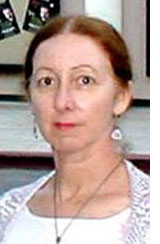 SAN DIEGO—Many years ago I read the wonderful classic autobiography, Growing Up by Pulitzer Prize winning columnist/author Russell Baker. It is an unforgettable “laughing through the tears” story of a family struggling to survive during the Great Depression. After years of harrowing hardship, after running out of all other options (even giving up a younger child to another family) and literally facing starvation, Baker (still a young boy) and his mother walked across the city of Baltimore in the winter to pick up commodities. These were basic food stuffs (flour, beans, rice, etc.) doled out to the abject poor. For years they had resisted doing this, but could no longer. They brought with them a child’s play wagon (like American Flyer) in which to place the food. SAN DIEGO—Many years ago I read the wonderful classic autobiography, Growing Up by Pulitzer Prize winning columnist/author Russell Baker. It is an unforgettable “laughing through the tears” story of a family struggling to survive during the Great Depression. After years of harrowing hardship, after running out of all other options (even giving up a younger child to another family) and literally facing starvation, Baker (still a young boy) and his mother walked across the city of Baltimore in the winter to pick up commodities. These were basic food stuffs (flour, beans, rice, etc.) doled out to the abject poor. For years they had resisted doing this, but could no longer. They brought with them a child’s play wagon (like American Flyer) in which to place the food.
Though terribly in need and through no fault of their own, they considered their pride utterly smashed that day. To hide their deep embarrassment they each took a turn covering the contents of the wagon with the winter coats they were wearing. First the mother and then the young son took off his/her warm coat, covered the food as they walked across the city in the depths of winter. As we look back on this we would surely say their embarrassment was unnecessary - but it wasn’t to them. How times have changed.
In December 2007 I received an e-mail from a well known local Jewish charity asking that the community respond to the needs of families during the holiday season. To further this request the needs of several anonymous families were given in detail. As one would expect food was mentioned as well as clothing with sizes for various family members, and then some special requests from the children. It was these special items that caught my eye. Among the requests from the youngsters were I-Pods, MP3 players and play stations.
One of my fondest memories when I was very young was staying at my grandmother’s house, which since we lived only two blocks away, was almost a second home for me. On one particular evening my parents had left me in my grandmother’s care and as the hour grew late, I fell asleep on the sofa. When my parents returned I awoke to a big surprise. They had brought me several gift packages and as if in a dream I opened the packages to find many wonderful toys; a refrigerator, stove, sink, pots and pans, all doll size and mine!
But most of the time gift giving and the purchase of non-essential items were dependent upon the family’s finances at any given moment. As much as I adored the deluge of gifts I received that one night, I treasured even more the items that were given to me with great care because of restricted financial resources. I learned very early that a pair of mittens is much more valuable a gift than a toy; one gladdened my heart, but the other kept me warm.
For my ninth birthday a big party had been planned but had to be cancelled because of financial necessity - the unforeseen expenses with the recent birth of a second child. That year my parents told me that the most they could afford was a set of a ball and jacks - probably costing about $1.00 or less (at that time). As disappointed as I was about the party, I understood.
Interestingly, while the party would have given me joy for a couple of hours, I got years of fun out of the ball and jacks. I practiced every day and soon was the neighborhood/school champ clear up through ninth grade. I still have that ball and jacks, tucked away in a drawer. Because they were bought with love - and my parents’ regret it couldn’t be more - I treasured that gift above all the gifts I got on subsequent birthdays. My son will find that ball and jacks as he goes through my things when I am gone and wonder why his silly mother kept them.
By the time I was eleven I was well past the age of my small tricycle and desperately wanted a bicycle. My heart was set on a beautiful Columbia with blue and white fenders; cost $60.00. There was no way my parents could afford that bike. My mother suggested that I buy a pack of three by five cards, write out my name and phone number, my qualifications for baby sitting (caring for a much younger sibling) and disperse the cards for two or three streets near home. I got a number of replies and was soon very busy. However, at fifty cents an hour I needed to do a great deal of baby sitting to get anywhere close to the price of that bike. Other expenses such as birthday gifts for family members, etc., cut into my savings, too.
When I had finally saved $40.00, including $10.00 from a summer lemonade stand, my parents contributed the remainder and the bike was mine. As luck would have it, the day it was delivered Philadelphia was blanketed by a blizzard so my dream of riding my new bike was delayed for another month. I spent a great deal of time in the basement polishing, loving, admiring and eating my lunch next to my brand new - albeit as yet unridden - bike. I couldn’t even sit on it as my father said it wasn’t good for the tires.
Many times I heard “no, we can’t afford it” or “not now - maybe later.” I wasn’t harmed by that and would even propose I profited by it. Delayed gratification is not a bad thing, but a maturing concept. Living within one’s means is a necessary lesson. Another lesson my parents taught was to never ask for presents, not from family and certainly not from others.
Fortunately, while raising our son my husband and I never had to say “no” to him for financial reasons. However, one day I bought strawberries in winter - when they were comparatively expensive - and my young son frowned and asked “Where’s the cream?” I realized comfortable living has its moral drawbacks. From then on he was encouraged to find some lawns to mow, chores people needed to have done, errands to run for senior citizens, and learn the value of working and saving for “the cream.”
Back to the requests for a play station, Mp3 player and I-Pods. I can understand the need of a very young child to have a teddy bear, a ball, a doll, etc. A very young child has no means to earn money, save for something, or to understand financial considerations. But, it seems to me that a child old enough to use a play station, Mp3 player or an I-Pod is old enough to understand these are extras, not necessities. He/she is also old enough to understand that a gift of food and clothes has far more value.
I had an opportunity to mention this to a rabbi in a group setting and his answer was interesting. He felt that these extras are necessities and that a youngster should not lack what everyone (everyone?) around him has. Several in the group felt otherwise. I feel otherwise. We are not born with a right to what everyone around us has. It is the responsibility of the family to provide but if the family is having difficulty, then the community needs to respond. Food, medical care, shelter, clothes are the responsibility of all of us to respond to in times of stress.
One might wonder if it is a good idea to actively teach youngsters to ask the community for gifts of non-essential items? Is this a good value system for our next generation? In my opinion, I-Pods, Mp3 players and play stations are not the community’s responsibility to provide. It’s okay for a youngster to be told “no, we can’t afford that” - or “maybe later” or even better “why don’t you find a way to save up for it?”
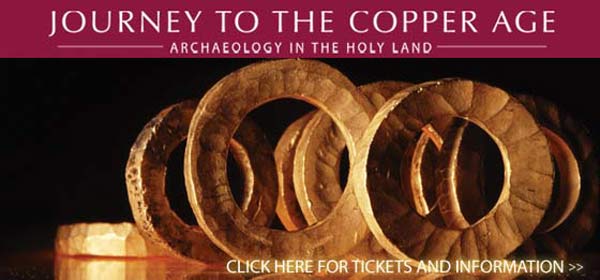

JEWISH MEMORIES
Mother’s death: A most Jewish moment
By Marsha Sutton
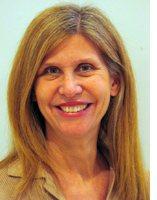 DEL MAR, California—The day my mother died was the day I was reborn as a Jew. DEL MAR, California—The day my mother died was the day I was reborn as a Jew.
It was 20 years ago yesterday – February 3, 1988 – that I got the call from my father. Come now, he commanded, his voice cracking. By the time I arrived, it was too late. She was dead, her battle against metastatic breast cancer lost.
Born Jewish into a Reform home, I identified as a Jew all my life. With two Jewish parents and four Jewish grandparents, my credentials were impeccable. All four grandparents were immigrants fleeing Russia and Eastern Europe in the early 1900s. They spoke Russian, Yiddish, Polish; they were orthodox, poor and persecuted.
They wanted nothing more than to see their children integrated into a gloriously free American society, to develop a trade, become college-educated, and make it into the middle class. They were dreamers and hard-workers, toiling to make life better for their children and grandchildren.
But as happened with many of our generation, we turned our backs on the old ways, religious tradition giving way to the secularism of a popular culture that saw youth demonstrating in the ‘60s for freedoms unimaginable in our grandparents’ time.
There was inter-marriage – and divorce – in record numbers; there was a complete transformation of the practice of Judaism among Reform and even Conservative Jews; there were progressive synagogues that updated ancient traditions; there were women ordained as rabbis.
And so, although Jewish inside, I questioned old rituals, criticized antiquated Talmudic laws, found fault with the patriarchal imagery so integral to the religion … and drifted away.
I had a bat mitzvah, which was no small feat way back in 1967 in the small town in southern Illinois where I grew up, where there was a grand total of four Jewish children in my 1,200-student high school. Our tiny congregation was visited every other Shabbat by a traveling rabbi-in-training from the Hebrew Union College in Cincinnati, who one year was tasked to prepare me for a ritual previously reserved only for boys in our small farm town.
In college I made the trek to Israel on one of those United Jewish whatevers, those missions that take soon-to-be alienated young Jews to (hopefully) reconnect with their heritage and reclaim their identity as Jews.
I even married Jewish, at a wedding officiated by not one but two Reform rabbis. And after the death of my mother, Marilyn, I gave birth to two lovely boys, both of whom are engaged in Jewish education outside their secular studies.
But there was, and has been to date, no event more Jewish to me than the death of my mother.
Even the miraculous birth of my first son two years later was not, for me, as profoundly Jewish an experience. It was not just her actual death that affected me so deeply; it was all the other accoutrements that accompany the loss of a loved one. It was the family who gathered from all corners of the country to be with me; it was planning a funeral, visiting the mortuary, meeting with the rabbi, listening to the eulogies; it was the comforting rituals of reciting the Mourner’s Kaddish and sitting shiva.
As I look back over these past 20 years, I realize that nothing has drawn me closer to my religion than this single life-changing event.
There is something profoundly spiritual about death, the customs and rituals, the serene pose of the dead, the respect and care Jews exercise to prepare the body for burial.
The rituals offered comfort when the intense grief threatened at times to overtake me. Oddly, I felt enveloped with a sense of peace and tranquility, secure in the knowledge that what was happening and how it was happening was consistent with generations of Jews before me, connecting me in a powerful spiritual way with a long line of births and deaths, joy and sadness, triumph and hardship.
I distinctly remember the feeling of observing the days just after her death from a place outside my own body, a place where I could witness the stark contrast of my emotions. Alternatively grief-stricken at my loss and joyful at the companionship and love of friends and family, I took comfort in knowing that her death brought people together, loved ones who mattered deeply to her.
Although I was grateful to be a part of this larger family of people who cared enough to come to my side when I was at the lowest moment in my life, it was bewildering, this emotional cacophony. A confusing tumult of uncontrolled moods washed over me for those seven days, beginning with the day she died and ending the day after the funeral when my relatives boarded the bus back to the airport and left me to cope with the pieces of a battered mental state.
As I look back upon that time, I recollect some sadness yes, but mostly now I remember the feeling of love from family and the calm that came from knowing what to do because Jewish law gives us guidelines to help us through the most difficult of times.
Away from home I know I can enter any synagogue anywhere in the world, as I have done, and recite Kaddish for my mother, with other Jews, foreign though they may be, by my side. There is a deep sense of ancestral continuity in this simple act, one that I know my mother would appreciate.
As I light a candle every year the night of Feb. 2, I remember and am grateful for the tradition of Yahrzeit. Feb. 2 is the date Rocky and I were married, and so I am blessed to both celebrate 23 years of happy marriage as well as be reminded that life is precious and can be taken from us at any moment. It’s the Jewish way, that even the most joyful of times is tinged with pain.
Now a member of a Conservative synagogue, I am reminded every year of the Hebrew date of my mother’s death, which never is Feb. 3. People have suggested that I avoid the conflict with my wedding anniversary by ignoring the Feb. 3 date and lighting a candle for her on her Hebrew date. But it just doesn’t feel right to me, to let that Feb. 3 date go by unacknowledged.
Today I am a stronger Jew because of my mother’s death. It’s a form of reincarnation, actually, that my mother’s death has resulted in the birth of a Jewish awakening in her daughter, one most unexpected … and a surprise still, all these 20 years later.
SAN DIEGO JEWISH WORLD THE WEEK IN REVIEW
Shoshana Bryen in Washington, D.C.: What is justification for providing Syria with border surveillance computers?
Donald H. Harrison in San Diego: Life under Coney Island's roller coaster
subject of Jewish Film Festival short
Rabbi Baruch Lederman in San Diego: The sixth aliyah that the congregation—and its gabbai and visitor—would never forget
Rabbi Danny Schiff in Pittsburgh, Pennsylvania: Jews should support Ma legislation to ban body exhibits without consent of deceased
Ira Sharkansky in Jerusalem: Which zealots block Middle East peace?
Carol Davis in San Diego: Cygnet swings for—and reaches—Fences
Donald H. Harrison in San Diego: Commuter conversations—San Diego style
Isaac Yetiv in La Jolla, California: Gazans break out to Egypt may prove to be Israel's blessing in disguise
Judy Lash Balint in Jerusalem: Jerusalem's snow and political flurries
Peter Garas in Canberra, Australia: The labels that other people affix to us
Donald H. Harrison in Imperial Beach, California: Imperial Beach blue: 'John' was canceled
Sheila Orysiek in San Diego: How to order flowers for a bat mitzvah
Ira Sharkansky in Jerusalem: Winograd report providing grinding surface for many different political axes
Francine Ginsburg in La Jolla, California: Storyline, editing, teaching potential are all criteria for whether a film is chosen
Donald H. Harrison in National City, California: When civic and religious duties clash
Marissa Palin in La Jolla, California: Global warmth: is Bible really to blame?
Reut Schwartz-Hebron in San Diego: Economics account for some Hindu and Jewish ritual; Zen offers a way to adapt
Shoshana Bryen in Washington D.C.: Gaza chaos likely to metastasize, posing new dangers to Israel, U.S. forces, Egypt (A report by Lenny Ben-David)
Cynthia Citron in Los Angeles: Last Days of Judas Iscariot lasts and lasts
Carol Davis in San Diego: Ion scores with The Pillowman
Peter Garas in Canberra, Australia: Tired of telephone solicitors? Try handling them with some old fashioned chutzpah
Donald H. Harrison in La Jolla, California: Ethiopian Jew's show a comical eye-opener
J. Zel Lurie in Delray Beach, Florida: Should Allies have bombed Auschwitz?
< BACK TO TOP
|
|